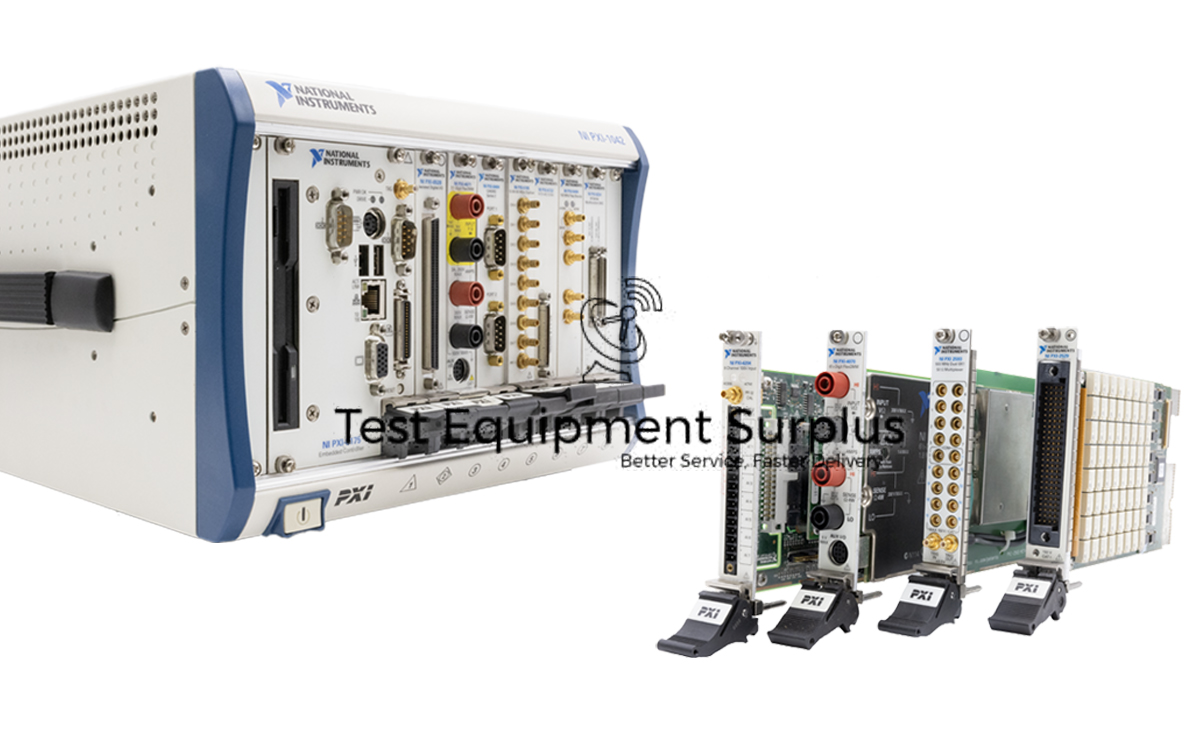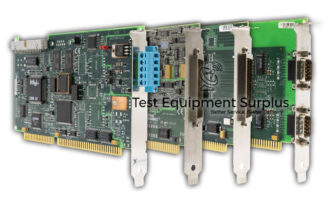Description
The National Instruments PXIe-2790 is a versatile PXI RF Multiplexer Switch Module with part numbers 782576-01 and 196806C-01L, designed to operate across a wide frequency range from 10 MHz to 6 GHz.
It is engineered to maintain signal integrity with a 50 Ohm characteristic impedance and integrated 50-ohm termination on both channels and COM lines. The module can handle a maximum input voltage of +/-5 V and is built to withstand significant stress with an operational shock resistance of 30 g peak, accommodating a half-sine, 11 ms pulse.
Durability during operation and storage is ensured with an operating vibration tolerance of 0.3 grms from 5 to 500 Hz and a nonoperating vibration tolerance of 2.4 grms over the same frequency range. Its solid-state FET switch can recognize trigger pulse widths of less than 150 ns, demonstrating its quick response capabilities.
This module is equipped with seven female SMA jacks that facilitate easy connections to RF devices. The power requirements for the PXIe-2790 are modest at 0.9 W at 3.3 V and 0.6 W at 12 V, and it operates safely within a pollution degree of 2 and up to a maximum altitude not specified in the provided data.
| Specification | Detail |
|---|---|
| Part Number | 782576-01, 196806C-01L |
| Product Type | National Instruments PXIe-2790 PXI RF Multiplexer Switch Module |
| Frequency Range | 10 MHz to 6 GHz |
| Characteristic Impedance | 50 Ohm |
| Termination | 50-ohm on channels and COM lines |
| Maximum Input Voltage | +/-5 V |
| Operational Shock | 30 g peak, half-sine, 11 ms pulse |
| Operating Vibration | 5 to 500 Hz, 0.3 grms |
| Nonoperating Vibration | 5 to 500 Hz, 2.4 grms |
| Minimum Trigger Pulse Width | Less than 150 ns |
| Switch Type | FET |
| Connectors | Seven female SMA jacks |
| Power Requirements | 0.9 W at 3.3 V, 0.6 W at 12 V |
| Pollution Degree | 2 |
| Maximum Altitude
Question 1: What are the voltage requirements and operational shock resistance specifications for the National Instruments PXIe-2790 RF Multiplexer Switch Module? Question 2: What are the key specifications and capabilities of the National Instruments PXIe-2790, including its frequency range, maximum voltage input, shock resistance, and unique features related to signal integrity and response times? Question 3: What are the durability and shock resistance specifications of the National Instruments PXIe-2790 RF Multiplexer Switch Module? Question 4: What are the specific functionalities and durability characteristics that make the National Instruments PXIe-2790 suitable for various RF applications? Question 5: What is the range of operational shock resistance, expressed in peak g, that the National Instruments PXIe-2790 can withstand? |



